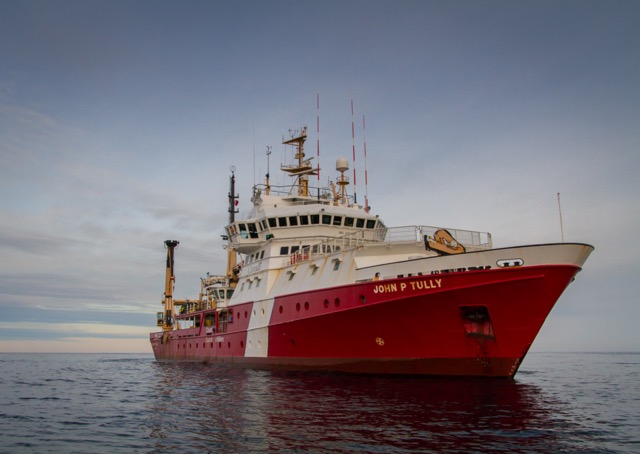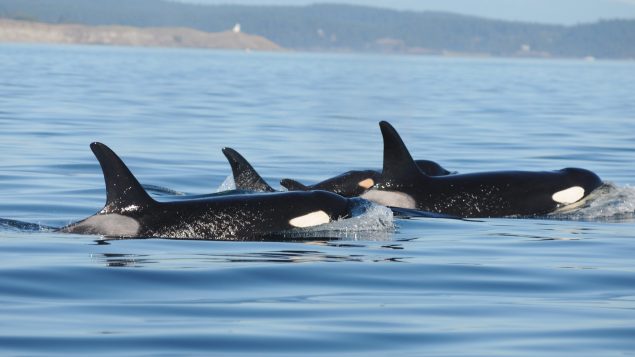The federal government has launched the largest marine survey in Canadian Pacific waters to better understand what is happening with key mammal species such as endangered whales and to collect new information that will help better identify critical habitat for species at risk.
This first-of-its-kind survey will be conducted by scientists from the Department of Fisheries and Oceans from July 3 to Sept. 6 aboard two Canadian Coast Guard (CCG) vessels: the CCGS John P. Tully and the CCGS Tanu, officials announced Wednesday.
The $1.3 million Pacific Region International Survey of Marine Megafauna will cover the offshore waters within Canada’s Exclusive Economic Zone and inshore areas in British Columbia.
Scientists will be surveying several species at risk, including blue whales, North Pacific right whales, fin whales, Sei whales, humpback whales, harbour porpoises, grey whales, killer whales, and loggerhead and leatherback sea turtles, as well as other species such as Dall’s porpoises, Pacific white-sided dolphins, sperm whales, and several species of beaked whales.
The most comprehensive survey so far

Canadian Coast Guard Ship John P. Tully is one of two vessels used by Canadian scientists to conduct the largest survey of marine mammals off the coast of British Columbia this summer. (DFO)
Researchers will use acoustic array to complement visual observations, and to detect rare and long-diving species, such as Sperm whale, beaked whales, and to help identify small marine mammals, officials said.
“The Pacific Region International Survey of Marine Megafauna is the most comprehensive marine mammal survey DFO has undertaken to date off Canada’s Pacific coast,” said in a statement Dominic LeBlanc, Minister of Fisheries, Oceans and the Canadian Coast Guard.
Robert Rangeley, science director at conservation NGO Oceana Canada, said the new federal investment in science is an important contribution to conservation of marine mammals.
“Understanding their population status, habitat use and behaviour is critically important in order to reduce threats to their survival on the Pacific coast, an area that is increasingly busy with human activity and a changing ocean environment,” Rangeley said in an emailed statement to Radio Canada International.
The National Oceanic and Atmospheric Administration is also conducting a major marine mammal survey of American Pacific waters. The information collected from both surveys will give a more complete picture of marine mammal distribution in the Pacific Ocean, officials said.
“Biodiversity is a pillar of Canada’s heritage, economy, and security,” Defence Minister Harjit Sajjan said in a statement. “Our government recognizes that we must learn more about the numbers and habits of marine species at risk if we are to protect them effectively.”







For reasons beyond our control, and for an undetermined period of time, our comment section is now closed. However, our social networks remain open to your contributions.